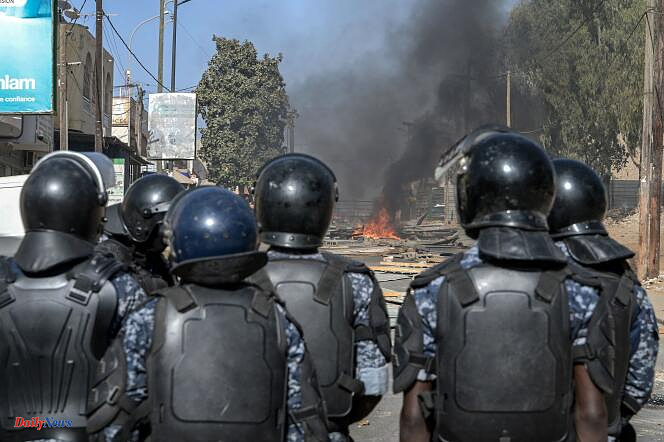This is the most critical reaction to date from an important partner of Senegal to the serious political crisis the country is going through. The United States believes that the vote of the Senegalese Parliament, which validated the postponement of the presidential election on Monday, is not “legitimate,” the State Department declared Wednesday, February 7, in a press release. American diplomacy “urges the government of Senegal to organize the presidential election in accordance with the Constitution and electoral laws.”
“The United States is deeply concerned by the measures taken to postpone the February 25 presidential election in Senegal, which go against the strong democratic tradition” of the country, it is written in particular. They are “particularly alarmed” by the conditions in which the deputies ratified on Monday this postponement decreed by President Macky Sall two days earlier, as well as by the forcible evacuation by the gendarmes of the parliamentarians who opposed the vote, continues the State Department. Given these circumstances, “the vote cannot be considered legitimate,” he adds.
For the first time, the Senegalese, who were due to elect their fifth president on February 25, will do so almost ten months later than expected, if things do not change by then. The last-minute change in the schedule sparked public outrage, cries of a “constitutional coup” from the opposition, and concern from a number of foreign partners.
Call to restore the electoral calendar
The Assembly's vote on Monday evening completes for the moment one of the most serious institutional crises that this country, readily praised for its stability and its democratic practice in a troubled region, has experienced since independence in 1960.
The West African organization ECOWAS, of which Senegal is a member and within which it has constantly advocated for respect for the constitutional order in other countries, encouraged it to "urgently take the necessary measures to restore the electoral calendar”.
The adoption on Monday of the proposal by an alliance of deputies from the presidential camp and supporters of candidate Karim Wade, disqualified by the Constitutional Court, plunged the country into great excitement and the fear of new unrest, after the deadly ones of March 2021 and June 2023.
The emotion was widely expressed on social networks, but it barely spread to the streets. Some gatherings were repressed by security forces. The opposition and the press reported dozens of arrests.
Three deputies allied or members of Pastef, Guy Marius Sagna, Abass Fall and Cheikh Aliou Beye, arrested Tuesday, were released, two officials from the party which had been at the forefront of the confrontation with the Pastef told Agence France-Presse. power in 2021 and 2023. Pastef was dissolved by the authorities in 2023 and its numbers one and two, Ousmane Sonko and Bassirou Diomaye Faye, imprisoned.
The Constitutional Council disqualified Mr. Sonko from the presidential election, but validated the candidacy of Mr. Faye. The latter, even in prison, established himself as a credible candidate for victory, a nightmare scenario for the presidential camp.
Mobile internet restored in the capital
After Monday's vote, Pastef as well as a certain number of candidates selected by the Constitutional Council affirmed their intention to campaign anyway. But their project is struggling to come to fruition.
The authorities also suspended the Internet of mobile data on Monday and Tuesday, a means increasingly used to stop the mobilizations. But access was restored on Wednesday, at least in the capital, where activity was returning to normal after having seriously slowed down for two days.
The mandate of Mr. Sall, elected in 2012 and re-elected in 2019, expired on April 2. By repealing on Saturday the decree summoning voters to the polls on February 25, he said he was drawing the consequences of the institutional conflict opened after the final approval of twenty candidacies and the invalidation of dozens of others in January.
He also invoked the accusations of corruption brought by the failed candidate Karim Wade against the Constitutional Council. He said he wanted to prevent any electoral disputes and further unrest.
The postponement, which should bring Senegal back to the starting point of a perilous electoral process whose constitutionality is strongly doubted, immediately heightened the suspicion of a plan by the presidential camp to avoid an announced defeat, or even to prolong the Sall presidency. The head of state reaffirmed his commitment not to run again.












